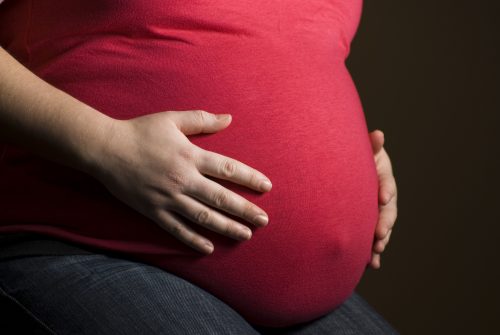
From nausea to weight gain to food safety; there’s a lot to get used to.
Avoiding foods
You may think that food safety during pregnancy is over-hyped and you’re being told that you can’t eat anything, but this issue shouldn’t be taken lightly.
Unfortunately we have a tendency to want what we can’t have – those ham sandwiches never looked so good – but the consequences of food-borne illness in pregnancy can be devastating, so you’re best to play it safe.
There is an excellent brochure available from the NZ Food Safety Authority that your Lead Maternity Carer (LMC) will be able to provide you with, that outlines everything you need to know about food safety. And their website also has some good information.
Due to strong family histories of allergies on both sides, I’ve also chosen to avoid peanuts while pregnant.
There is evidence that avoiding peanuts while pregnant and breastfeeding may reduce the risk of subsequent allergy.
However, there is not the same evidence that avoiding other potentially allergenic foods will have the same benefit. In fact this may compromise your nutrition, so should only ever be done under supervision by a registered dietitian.
Caffeine
While many pregnant women believe they must give up caffeine altogether, this doesn’t appear to be necessary. A moderate intake is okay – although caffeine can contribute to indigestion so it may be helpful to give it up if this is a problem for you.
The caffeine content of drinks can vary a lot, but the recommendation is to limit to 200mg a day. Your average cup of tea has 10-50mg caffeine, one teaspoon instant coffee 60-80mg and one cup percolated coffee 60-120mg.
As iron requirements are increased during pregnancy and tea and coffee (including herbal teas) can decrease iron absorption, have these between, rather than with, meals.
Alcohol
There is no known safe alcohol intake during pregnancy. It is best avoided altogether – nine months isn’t forever!
Pregnancy problems
Nausea
Morning sickness is most common in the 1st trimester although it can be an ongoing issue throughout pregnancy.
Many women find that nausea is worse when they have an empty stomach and are tired, so it is wise to never be too far from food and to get plenty of rest.
Keeping a snack in your purse and having some crackers or plain biscuits by the bed can be useful.
If you can’t stomach breakfast, sipping on a diluted glass of fruit juice can be a gentle way to start the day. This worked well for me when I was nauseous but still needed to get up and about. Have your breakfast a little later if necessary – I managed to have mine for morning tea at work.
Constipation
As I have been unfortunate enough to find out, factors such as hormone levels and physiological changes can cause constipation from early on in pregnancy.
That’s even before you may require iron supplements, which can make the problem worse! Therefore, it’s important to ensure a high intake of fibre and fluid from day one, to try to avoid – or manage – what can be a very uncomfortable issue!
Choose high-fibre breakfast cereals, bread and crackers, and have plenty of fruit, dried fruit and vegetables, legumes, nuts and seeds. Make sure you have at least 8 cups of fluid each day and try to keep active.
Indigestion
Indigestion is particularly common later in pregnancy as your baby grows bigger, taking up more space in the abdomen.
Hormones can also play a role, allowing stomach acid to go back into the oesophagus, causing heartburn.
To combat this, avoid very spicy and fatty foods, caffeine and peppermint-flavoured foods (and toothpaste!), have smaller, more frequent meals and wait at least an hour after eating before going to bed. Try having drinks between, rather than with, meals.
Cravings
Nobody’s 100% sure why pregnant women crave certain foods, although there is a theory that craving high-energy foods is one of the body’s ways of meeting the increased kilojoule requirements of pregnancy.
Most cravings are harmless and not a cause for concern, unless you let craved foods regularly replace more nutritious foods in your diet.
Some women experience ‘pica’, which is a craving for non-foods – like laundry powder and dirt! This is obviously more concerning and should definitely be discussed with your LMC!
Weight gain
Pregnancy weight gain is a very individual issue, with normal weight gains varying anywhere between 6-18kg, depending on your pre-pregnancy weight.
It can be difficult for some women to see the scales steadily increasing, particularly if you are usually careful to maintain your weight, but remember that this is all part of growing a healthy baby.
While some say to expect one-third of your weight gain by the end of the 2nd trimester and two-thirds in the final trimester, I’ve already gained 10kg – but I can’t see myself adding another 20kg before baby is born!
If you have any concerns about weight gain, discuss this with your LMC, as gaining either too much or too little weight can both be unhealthy for your baby.
In terms of losing that weight post-pregnancy – don’t have unrealistic expectations. After all, we’re not Hollywood stars with private chefs and daily personal trainers!
Breastfeeding is not a time to be dieting, as your energy requirements are even higher than during pregnancy, which is why breastfeeding is helpful in losing pregnancy weight.
Continue to eat sensibly and gradually build up your activity levels after the baby’s birth.
If you are really struggling to get your weight down after several months, consult a registered dietitian who can give you safe weight-loss advice while still ensuring that all your nutrient requirements are met.
www.healthyfood.com











